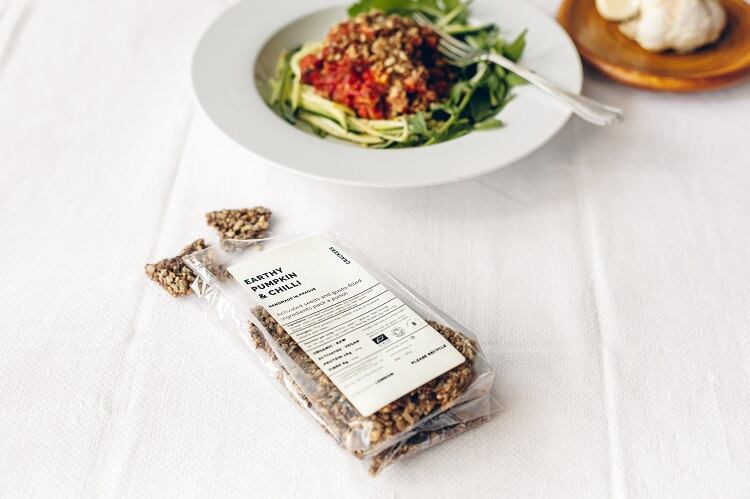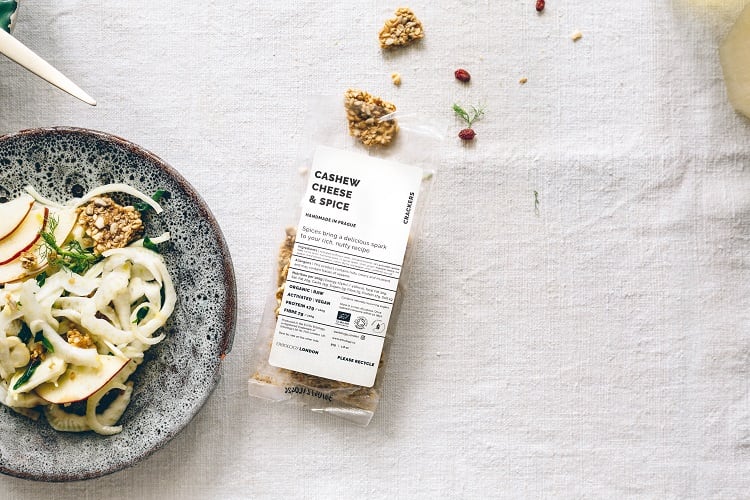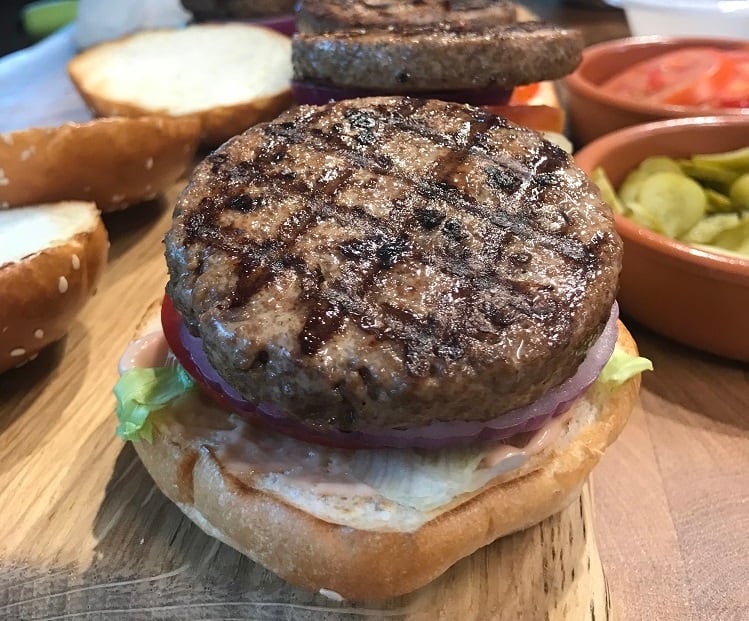Erbology was founded by siblings Irina and Victor Turcan in 2015 in response to growing demand for healthy food.
The start-up focuses on plant-based ingredients that have nutritional benefits associated with consumption. Its drinks range includes bergamot shots and sea buckthorn juice, and powders are made from ingredients such as milk thistle or Jerusalem artichoke.
Plant-based snacks, such as crackers, energy balls, and tigernut granola, are also part of Erbology’s offerings.
More recently, the start-up has made the decision to provide a new service to its customers: personalised snacks.
“This means we’re sending our customers snacks that are more likely to deliver on the health benefits they seek and, because they are delicious, wholesome, and sustainable, be snacks that customers can enjoy guilt-free,” Irina told FoodNavigator.
From Bessarabia to London
The brother-sister duo was inspired to launch Erbology having grown up in Bessarabia – a region between the Balkans and Eastern Europe. Here, Irina said her family was ‘surrounded by the ingredients that are now part of Erbology’.
But the inspiration for Erbology expands both beyond the region and her immediate family. “We are inspired by our great grandparents, Ayurveda, traditional Chinese medicine, as well as Mayan and Aztec cultures,” she told this publication.
“We study these ancient practices and pass the knowledge to our customers. The interest in plant-based foods is booming and we are at the core of it.”
Upon arriving in the UK more than 10 years ago, the co-founder was met with an established market for ready meals and supplements marketed by brands offering what she described as a ‘quick fix’.
“Later, the healthy snacking industry – where most snacks are actually unhealthy – started booming. At the same time, a new wave of meal replacement companies arrived claiming to offer a nutritionally complete meal.
“But above all, it made no sense to me that a dietary supplement, mostly synthetic, could make your hair shiny, your immune system stronger, or give you more energy.
“We all like a quick fix, but when it comes to health and wellbeing, there are no shortcuts.”
The company claims to be ‘on a mission to make healthy eating accessible’. “Our customers are at the forefront of what we do,” we were told, and now “they can also personalise their guilt-free snacks to their dietary needs and taste”.
Personalised snacks in less than two minutes
The tailored offering, coined Erbology Personalised, works by first asking consumers to fill out a survey. The answers to these questions help the start-up determine which ingredients and flavours a customer likes and doesn’t like, as well as identify particular ingredient intolerances.
“We personalise your snack based on a few simple questions, which take about two minutes to answer,” Irina explained. “Based on these questions, we then offer you the snack that you’ll love.”
Questions include: “How much seasoning or flavour would you like your cracker to have?” and “Would you like a touch of sweetness to your cracker?”
Erbology also asks customers to identify a selection of their favourite ingredients, and of course, to list any dietary requirements.

The resulting cracker, whatever the flavour, is made from organic plant-based ingredients. All varieties are gluten free and made without processed sugar. Further, the seeds are ‘activated’ – a process which involves soaking the seeds to kick-start the germination process and drying them.
“As a base, we use seeds that we activate in order to make them more nutritious and better for your digestive system,” said the co-founder. “Seeds are an excellent source of vitamins and minerals, as well as protein and dietary fibre. There are not many companies out there willing to go through this meticulous process…”
Personalisation: a growing trend?
Erbology is not the first food brand looking to commercialise personalised food products on the market.
Elsewhere, in the nutrition space, UK-based Nourished has launched what it claims to be the world’s first 3D-printed ‘truly customised’ nutrition stack. And earlier this month FoodNavigator spoke with Israeli start-up SavorEat, which has developed a robot that can 3D print and ‘grill’ plant-based burgers, and customise the protein content, fat composition, product size, and cooking preference.
Yet, Erbology may well be one of the first to bring personalisation to the snacking category.
“Personalisation in the food industry is not new, especially in the hospitality industry where you can choose your ingredients for a meal,” said Irina, citing salad, pizza and pasta as examples. “However, healthy, packed products have lagged this capability to date…”
Personalisation is key, the co-founder stressed. “In nutrition, there is no one size fits all. And when it comes to taste, we are all different. That’s why personalisation is important.”
Customers appear to agree. Irina said the response from Erbology’s consumers to the personalisation offering has been ‘astounding’, with over 70% of its invited customer base wanting to take part in the testing phase.

Word of mouth is also helping drive business, we were told. “We only spend 3% of our turnover on customer acquisition, because customers recommend us.”
Growth potential
Erbology produces its personalised snacks range in Central Europe, close to its suppliers, and ships them directly – via a D2C model – to consumers.
Other Erbology products are also available via Ocado or in Daylsford farm shops around London, but the start-up said working directly with consumers comes with added benefits. “In addition to the ability to customise products when serving customers directly, another great thing about working with the customer is that you can get direct feedback and process it instantly.”
Concerning the coronavirus outbreak, the co-founder suggested Erbology’s D2C model has also helped the start-up to grow, where others have struggled to attract consumer spend. “We’ve been fortunate enough to continue growing our online business…In fact, our revenue more than doubled…”
This statistic alone may suggest there is opportunity for growth in the personalised snacks category. Irina herself is convinced this burgeoning trend is here to stay, as “more and more people want to know why you make your products, how and where you source your ingredients, and what impact your company has on the environment”.
People want to engage with and support companies they like and believe are doing the right thing, she continued. “Personalisation, above all, starts with the company’s attitude. It has to be in the company’s DNA.
“Companies that listen to their customers and innovate are the ones that will succeed in the future.”





